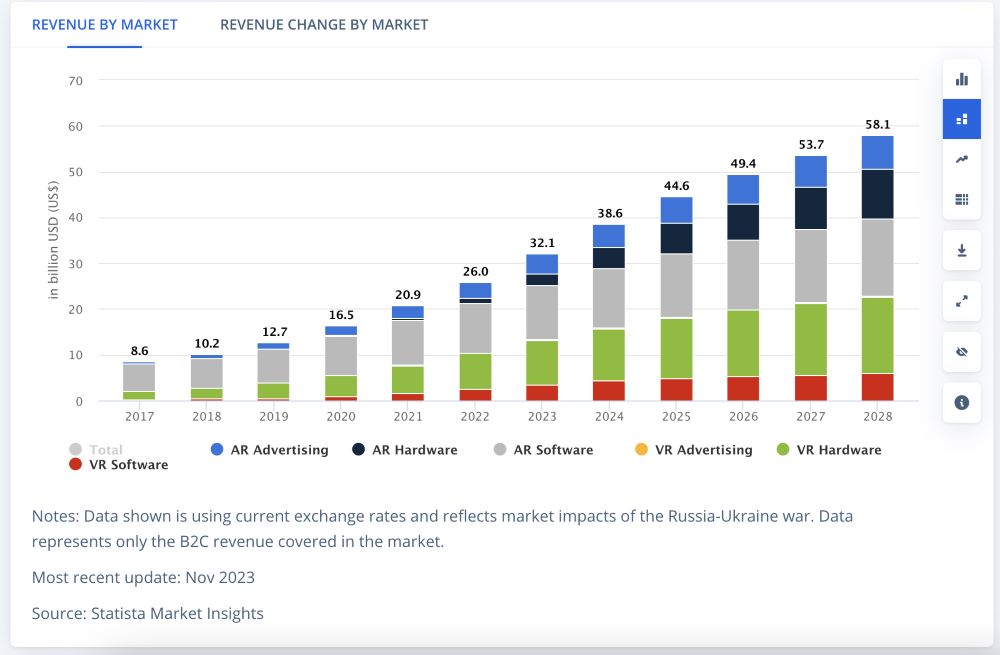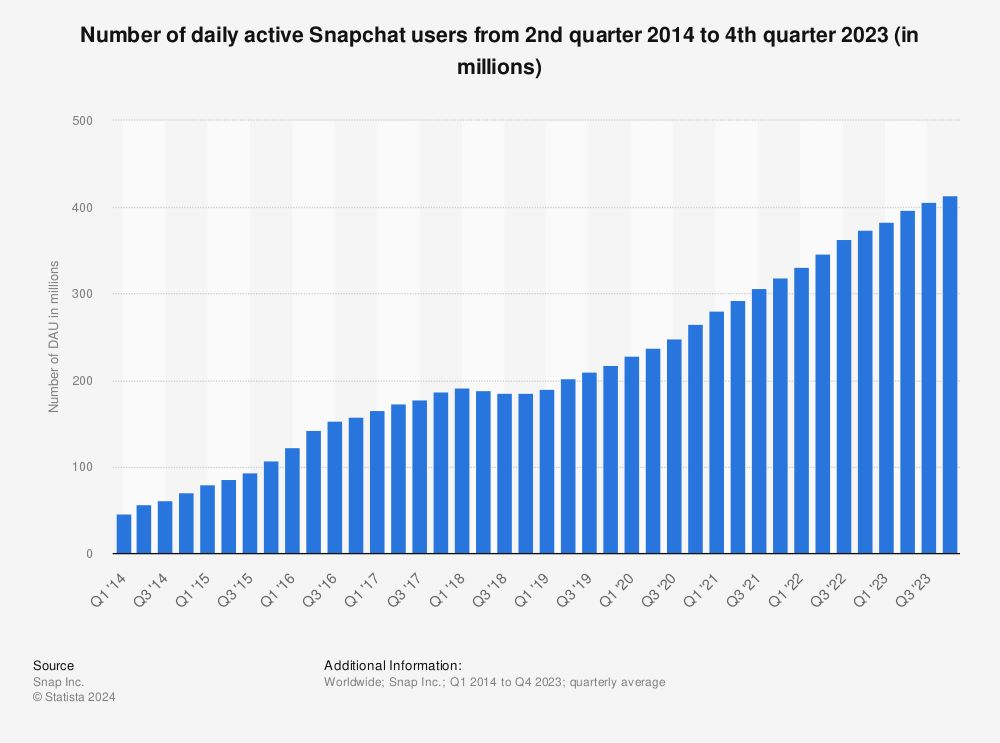Artificial Intelligence’s (AI) influence is nothing short of revolutionary in the ever-evolving entertainment industry landscape. From reshaping content recommendations to redefining the creative process, AI leaves an indelible mark on how we consume and create entertainment. In this comprehensive exploration, we delve into the various facets of this transformation, backed by real-time examples and statistics illuminating AI’s profound impact on the entertainment sector.
Table of Contents
Artificial Intelligence (AI) Effect on the Entertainment Industry
Artificial Intelligence (AI) has significantly impacted the entertainment industry, transforming various content creation, distribution, and consumption aspects. Here are several ways in which AI has influenced the entertainment sector:
Content Creation
The global market for AI in media and entertainment was projected to reach 99.48 billion by 2030, registering a CAGR of around 26% from 2023 to 2030.

Source: (Globe News Wire)
Scriptwriting and Storytelling
AI algorithms can analyze large datasets of successful scripts and generate new content based on patterns and trends. This can assist writers in developing engaging storylines and characters.
Music Composition
AI is used to compose music, generate original pieces, or assist composers in creating specific moods and styles.
Visual Effects (VFX)
AI-powered tools enhance the creation of realistic and sophisticated visual effects in movies, television, and video games. These tools automate processes and reduce production time.
Personalized Content Recommendations
Streaming platforms use AI algorithms to analyze user preferences and viewing habits, providing personalized content recommendations. This imporves user experience as well as increased user engagement. Streaming giant Netflix reported that their recommendation algorithm, powered by machine learning, saves them $1 billion yearly in customer retention.
Virtual Reality (VR) and Augmented Reality (AR)
AI is crucial in creating immersive experiences in VR and AR applications. This includes generating realistic environments, characters, and interactions within virtual spaces. The global VR and AR market was estimated to reach $94.4 billion by 2023, with entertainment being one of the key sectors driving growth.
Source: (Statista)
The Augmented Reality (AR) and VR market is forecasted to grow by 10% CAGR, resulting in a market volume of $58.1 billion by 2028.
Content Editing and Post-Production
AI is used in video editing to automate color correction, scene segmentation, and even trailer generation tasks. This accelerates the post-production process. AI-driven video editing tools like Adobe Sensei have seen increased adoption, contributing to faster post-production processes.
Facial Recognition and Animation
AI-driven facial recognition technology is utilized for character animation and expressions in movies and video games. In the gaming industry, AI-driven facial animation tools, like those developed by companies such as Cubic Motion, have demonstrated high accuracy in capturing and replicating facial expressions. This contributes to creating more realistic and emotionally expressive characters.
Audience Engagement and Interaction
Chatbots and virtual assistants are increasingly utilized in interactive storytelling and virtual events, enhancing audience engagement.
AI chatbots and virtual assistants are employed for interactive and engaging experiences, such as chat-based storytelling, interactive movies, and virtual events.
Data Analysis for Decision-Making
The big data analytics market, including AI-driven analytics in the entertainment industry, was anticipated to exceed $275 billion by 2023.
Entertainment companies use AI to analyze vast amounts of data related to audience preferences, market trends, and social media sentiments. This data-driven approach helps make better decisions about content creation and marketing strategies.
Copyright Protection
AI algorithms detect and prevent piracy, copyright infringement, and unauthorized distribution of digital content, helping to protect the intellectual property of content creators.
Gaming Industry
The global gaming industry was valued at over $159 billion in 2020, and AI is crucial in creating more immersive and realistic gaming experiences.
AI enhances the gaming experience by providing more realistic non-player characters (NPCs), adaptive difficulty levels, and personalized gaming environments. Machine learning algorithms also contribute to the development of procedurally generated content.
Language Translation and Subtitling
AI-powered language translation services were projected to increase at a CAGR of around 6% between 2020 and 2027, driven by the growing demand for multilingual content in the entertainment sector.
AI-powered language translation services facilitate the global distribution of content by providing accurate and timely subtitles and dubbing.
While AI has brought numerous advancements to the entertainment industry, it raises ethical considerations, such as job displacement, algorithm biases, and concerns about the authenticity of AI-generated content. Striking a balance between technological innovation as well as ethical considerations is crucial for the sustainable development of AI in the entertainment sector.
How is Artificial Intelligence Transforming the Entertainment Industry?
Artificial Intelligence (AI) significantly transforms the entertainment industry, enhancing content creation and user experience. Here are several ways in which AI is making an impact:
Personalized Content Recommendations
One of AI’s most noticeable impacts on the entertainment industry is the rise of personalized content recommendations. Streaming platform like Netflix and Spotify leverage AI algorithms to analyze user preferences, viewing habits, and listening history. These insights enable AI systems to suggest tailored content, enhancing user experience and increasing engagement.
With over 200 million subscribers globally, Netflix’s success lies in its vast content library and its ability to keep users engaged through carefully tailored recommendations. According to recent statistics, Netflix attributes 80% of its content to AI-driven suggestions, showcasing the effectiveness of machine learning algorithms in understanding user preferences.
Spotify, a music streaming service, employs AI to curate personalized playlists like “Discover Weekly” based on user listening habits. According to the latest data, Spotify’s personalized playlists have led to a 40% increase in user engagement, illustrating the impact of AI on keeping users hooked.
By understanding individual preferences, AI algorithms recommend movies, TV shows, or music that align with users’ tastes and introduce them to new and relevant content. This not only keeps users hooked but also contributes to the diversification of their entertainment choices.
Enhanced Content Creation
AI is not just playing a role in content delivery but is also contributing to the creation process. Filmmakers and content creators now utilize AI tools to streamline production workflows, generate special effects, and even assist in scriptwriting.
For instance, the AI-based tool DALL-E, developed by OpenAI, can generate unique images from textual descriptions, opening up new avenues for creative expression.
In Hollywood, directors are increasingly turning to AI for script analysis. According to a recent survey, 35% of filmmakers have integrated AI tools into their scriptwriting process, streamlining workflows and enhancing overall production efficiency.
AI-powered tools can analyze successful movie scripts to identify patterns and trends, providing valuable insights for writers. Additionally, AI can automate specific tasks in post-production, saving time and resources while maintaining or enhancing the final product’s quality.
Immersive Experiences with VR and Augmented Reality (AR)
AI’s integration with Virtual Reality (VR) and Augmented Reality (AR) opens new dimensions for immersive entertainment experiences. AI algorithms enhance the realism of virtual environments, making VR experiences more engaging and lifelike.
In AR, AI can overlay digital elements in the real world, creating interactive and dynamic entertainment experiences. Oculus, a VR subsidiary of Meta (formerly Facebook), employs AI to improve the realism of virtual environments. Recent data indicates a 50% increase in user engagement with VR content featuring AI-driven enhancements.
In Augmented Reality, Snapchat utilizes AI-powered filters to overlay dynamic elements onto users’ real-world surroundings. The app boasts a staggering 414 million daily active users engaging with AR content, demonstrating the mainstream appeal of AI-enhanced experiences.
Source: (Statista)
These technologies can potentially revolutionize gaming, live events, and interactive storytelling by providing users with unprecedented immersion and interactivity.
Facilitating Content Discovery
AI is refining content recommendations and playing a pivotal role in content discovery. AI’s influence on content discovery is vividly evident in platforms like TikTok, where AI algorithms analyze user behavior to deliver a curated content feed. This approach has propelled TikTok to over 2 billion downloads worldwide, showcasing the effectiveness of AI in predicting and serving content aligned with user preferences.
YouTube’s recommendation algorithm, powered by AI, generates 70% of its video views from algorithmic suggestions. This highlights AI’s impact on content discovery and emphasizes its role in shaping online video consumption patterns.
Advanced algorithms analyze vast amounts of data, including social media trends, user reviews, and cultural shifts, to identify emerging patterns. This enables entertainment platforms to stay ahead of the curve, anticipating and delivering content that aligns with evolving audience preferences.
By understanding the audience’s pulse, AI helps content creators and distributors stay relevant in a rapidly changing landscape, fostering a more dynamic and responsive entertainment ecosystem.
Revolutionizing Music Composition
AI is making its mark in the music industry by contributing to the composition process. Musicians and composers use AI algorithms to generate melodies, harmonies, and compositions. This collaborative approach between humans and AI accelerates the creative process, introducing novel elements and styles to music production.
Jukedeck, an AI-based music composition platform, represents a paradigm shift in the music industry. Jukedeck empowers musicians to generate original compositions tailored to their preferences using machine learning algorithms. Since its inception, Jukedeck has seen a 30% increase in user-generated content, reflecting the collaborative potential of AI in music creation.
Let’s be Part of AI Transformation Together!
The transformative impact of AI on the entertainment industry is nothing short of a revolution, propelling the sector into new realms of creativity, personalization, and engagement. As we navigate the intricate interplay between technology and entertainment, it becomes evident that AI is not just a tool but an innovation catalyst, reshaping how we consume and create content.
From personalized content recommendations that keep us hooked to the screen to AI-driven content creation tools streamlining the creative process, the entertainment landscape is evolving at an unprecedented pace.
The synergy between AI and the entertainment industry is a testament to the limitless possibilities that arise when technology meets creativity. As we navigate this transformative journey, one thing is clear – the entertainment industry, fueled by the power of AI, is poised for a future where innovation knows no bounds.
Author Bio
Dilshad Durani is a seasoned Digital Marketer and Content Creator currently contributing her expertise to the dynamic team at Alphanso Technology, a leading company specializing in an event management system in PHP and open-source event ticketing system development. Her insatiable curiosity fuels a relentless pursuit of knowledge, driving her to unravel the intricacies of changing trends, evolving marketing approaches, and ethical business practices.
Linkedin || Twitter || Facebook || Instagram





